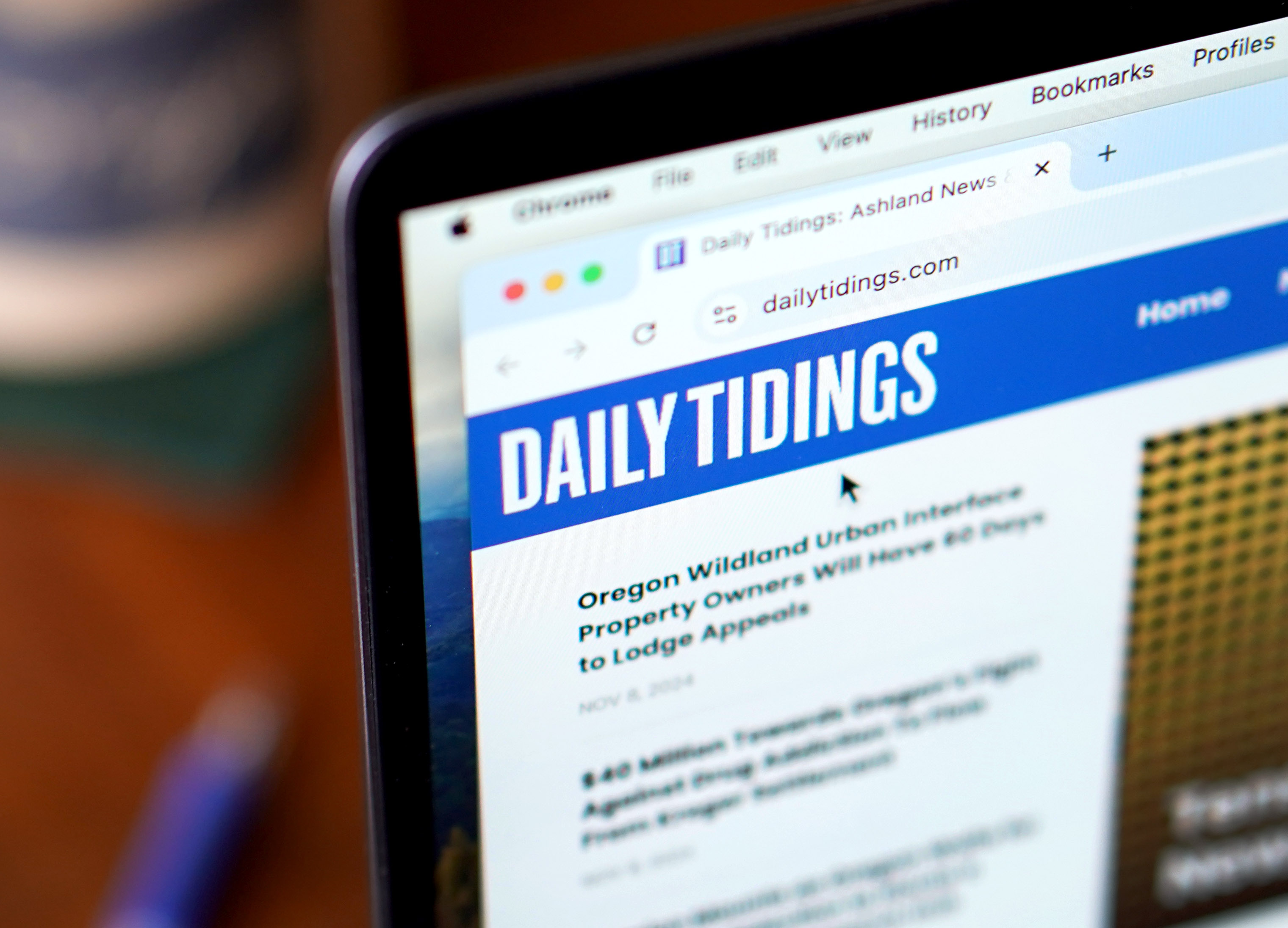The Relevance of Fact-Checking in the Globe of News Online
The frequency of false information in today's on the internet news landscape has gotten to alarming degrees. Fact-checking organizations play a vital duty in counteracting this fad. They verify insurance claims and enhance the integrity of journalism. Nonetheless, the performance of these organizations often pivots on their methodologies and public understanding. As target markets navigate this intricate setting, the implications of their searchings for might form the future of news intake and trust fund. What does this mean for the honesty of info moving on?

The Rise of False Information in the Digital Age
Exactly how has the advent of digital modern technology contributed to the spread of false information? The quick development of the net and social media systems has actually facilitated the dissemination of information at an extraordinary rate. Customers can share posts, video clips, and viewpoints with a simple click, typically without verifying the content's precision. Algorithms prioritize mind-blowing or emotionally charged material, leading to a proliferation of deceptive stories that capture attention.
Furthermore, the anonymity managed by electronic systems permits people to spread out false info without responsibility (stnews.live). Misinformation flourishes in echo chambers, where customers are exposed mainly to point of views that enhance their ideas, better lodging fallacies. The saturation of information can bewilder customers, making it testing to recognize reputable sources from undependable ones. False information has ended up being a prevalent concern in the digital landscape, impacting public point of view and depend on in reputable news resources.
The Duty of Fact-Checking Organizations
Fact-checking organizations play a necessary duty in boosting the reliability of journalism by confirming cases made in news records. Their initiatives are important in combating misinformation, making sure that accurate details prevails in the electronic landscape. By holding media electrical outlets accountable, these organizations add significantly to notified public discussion.
Enhancing Reputation in Journalism
While misinformation multiplies in the electronic age, fact-checking companies play a necessary function in boosting the credibility of journalism. These organizations meticulously verify insurance claims made in newspaper article, public statements, and social media messages, ensuring that info disseminated to the public is accurate and credible. By offering independent analyses, they work as a crucial source for journalists, helping them preserve high requirements of honesty. In addition, their initiatives advertise openness in media, cultivating public depend on. As audiences end up being progressively critical, the existence of trustworthy fact-checking entities can distinguish reputable news sources from those that may spread fallacies. Inevitably, the dedication of fact-checking companies to maintain truthfulness is critical for the wellness of democratic discussion.
Combating Misinformation Efficiently
As misinformation continues to spread out swiftly across digital platforms, the duty of fact-checking companies becomes progressively essential in the battle for exact details. These companies serve as guard dogs, scrutinizing claims made by somebodies and media electrical outlets to assure liability. By utilizing strenuous study methods and specialist analysis, they confirm truths and clear up deceptive narratives. Their searchings for are shared via numerous networks, educating the general public and cultivating vital thinking. Additionally, partnerships with social media sites platforms enhance their reach, permitting timely flagging of false details. As digital proficiency expands, the influence of fact-checking companies is important in empowering target markets to determine truth from fraud, eventually adding to a much more informed society.
How Misinformation Affects Public Understanding
Misinformation greatly undermines trust fund in media, leading target markets to question the credibility of news sources. Because of this, individuals usually gravitate in the direction of electrical outlets that strengthen their current beliefs, contributing to the polarization of point of views. This dynamic develops a fragmented information landscape, where shared understanding comes to be increasingly challenging to accomplish.
Rely on Media

Depend on in media has ended up being progressively vulnerable in the electronic age, where the quick spread of false information can alter public perception. As false information multiplies across social media and on-line platforms, target markets usually find it challenging to discern reliable resources from unreliable ones. This uncertainty cultivates skepticism, leading numerous people to examine the objectives behind news coverage. Count on in developed media electrical outlets has actually diminished, as consumers significantly turn to different sources that might do not have rigorous content standards. This erosion of trust fund not only impacts private ideas but likewise undermines the collective capability to participate in informed discussions. Eventually, the stability of journalism goes to stake, highlighting the vital demand for efficient fact-checking to recover self-confidence in the media landscape.

Polarization of Point of views
The boosting apprehension towards traditional media has added to an expanding polarization of opinions among the general public. False information, frequently disseminated through social networks and online platforms, plays a considerable role fit distinct ideological splits. Individuals regularly seek details that straightens with their pre-existing ideas, reinforcing their point of views while rejecting opposing viewpoints. This echo chamber result intensifies departments, resulting in a fragmented public discussion where agreement comes to be progressively elusive. Additionally, sensationalized stories flourish in this setting, better skewing public perception and promoting question in qualified sources. As polarization escalates, the necessity for reliable fact-checking becomes paramount to link gaps and advertise notified conversations, inevitably making certain a much more natural culture with the ability of steering complex problems.
Strategies for Effective Fact-Checking
Efficient fact-checking relies upon a methodical method that includes extensive study, verification of sources, and important analysis of cases. A foundational technique is cross-referencing info from several reliable resources to validate its precision. Fact-checkers usually utilize specialized databases and archives to map the beginning of specific declarations, making certain that the check my reference reported info straightens with documented evidence.
An additional necessary method entails looking at the context in which insurance claims are presented. Misleading information can emerge from out-of-context quotations or selective data use. By examining the wider story, fact-checkers can determine potential prejudices or misconceptions.
Engaging with experts in appropriate fields can provide clarity and insight that improves the fact-checking process. This cooperation can reveal subtleties that laypeople might overlook - stnews.live. Inevitably, a regimented strategy combining these strategies cultivates a much more enlightened public, boosting the reliability of info shared in the digital age
The Impact of Social Network on News Consumption
Just how has social media changed the means people eat news? The emergence of platforms like Facebook, Twitter, and Instagram has notably transformed news usage patterns. News is currently shared rapidly, enabling users to gain access to real-time updates and engage with content with sort, shares, and comments. This immediacy has actually cultivated a choice for bite-sized information, frequently at the cost of thorough analysis.
Social media enables customized news feeds, where algorithms curate content based on user preferences, developing resemble chambers that might limit exposure to varied point of views. The duty of standard news electrical outlets has decreased as individuals increasingly depend on peer recommendations and trending topics. The trustworthiness of info is often compromised, as sensationalism can outweigh valid reporting. Overall, social media has actually improved news usage, highlighting speed and customization while testing the requirements of journalistic stability.
Encouraging Target Markets to Determine Reliable Sources

Additionally, checking out the authorship and business history of news posts can disclose prospective prejudices. Cross-referencing details across numerous trustworthy electrical outlets better enhances the confirmation process. Utilizing electronic tools, such as web browser extensions that rank the next page reliability of web sites, can likewise help in determining trustworthy info. By proactively involving with these resources and growing a critical way of thinking, target markets can better outfit themselves to recognize reliable news sources, ultimately cultivating a more educated culture amidst the complexities these days's media environment.
The Future of Journalism and Fact-Checking
As the media landscape advances, the future of journalism and fact-checking encounters both tests and possibilities. The surge of electronic systems has equalized details dissemination, enabling varied voices to emerge. Nevertheless, this has also resulted in the proliferation of misinformation, requiring robust fact-checking devices. Journalists will progressively rely upon modern technology, consisting of AI tools, to validate realities quickly and effectively.
Partnership between wire service and fact-checking entities is expected to enhance integrity and transparency. Target market engagement will play a necessary role, as informed readers come to be substantial companions in identifying reliable content.
The demand for liability and accuracy is most likely to expand, pressing reporters to promote high criteria in their coverage. Eventually, the future of journalism might depend upon its capacity to adjust to technical developments while preserving journalistic integrity, ensuring that fact-checking stays a keystone of reliable news.
Frequently Asked Inquiries
Just How Can I Report False Information I Come Across Online?
To report misinformation experienced online, individuals can make use of platform-specific coverage tools, give clear evidence, and share the info with fact-checking companies. Engaging with area discussions can likewise aid raise understanding concerning the misinformation.
What Prevail Indications of Misinformation in News Articles?
Common indicators of false information in news short articles consist of marvelous headlines, absence of trustworthy resources, psychological language, inconsistent realities, and absence of author credentials. Visitors need to critically assess material for these signs to recognize precision.
How Do Fact-Checkers Confirm Resources?
Fact-checkers verify resources by cross-referencing information with qualified databases, seeking advice from professionals, and examining the initial context of insurance claims. They also analyze the integrity of the resources, guaranteeing accurate and trustworthy details for public intake.
What Lawful Actions Can Be Taken Against False information?
Legal activities versus misinformation might consist of disparagement claims, cease-and-desist orders, and regulatory charges. Targets can seek redress with civil courts, while some territories impose penalties or sanctions on systems distributing incorrect information.
Are There Apps for Fact-Checking News On-The-Go?
Many applications exist for fact-checking news on-the-go, including Snopes, FactCheck.org, and PolitiFact. These applications aid users verify claims quickly, advertising notified decision-making and promoting a much more critical technique to consuming news click to read more in real-time.